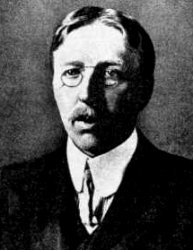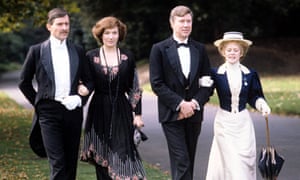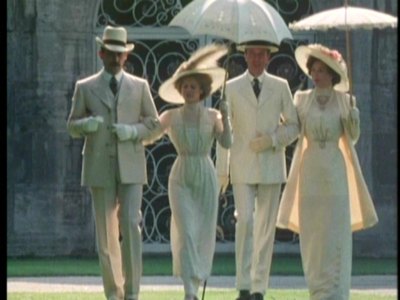Two
scholars at the New School for Social Research published an article
about literature and empathy last month, full of bad news for mystery
readers. If you belong to Sisters in Crime and saw the most recent
SinC Links, you may have noticed the references to
"Different Stories: How Levels of Familiarity with Literary and Genre Fiction Relate to Mentalizing."
The authors, David Kidd and Emanuelle Castano, say people who read
novels by authors such as Alice Walker and Vladimir Nabakov excel on a
test of "theory of mind," indicating they have superior abilities "to
infer and understand others' thoughts and feelings." Such readers are
likely to be characterized by "empathy, pro-social behavior, and
coordination in groups." Readers of mysteries and other genre fiction
don't do as well on the test. So apparently we're an obtuse,
hardhearted, selfish bunch, and we don't play well with others.

This
is grim stuff. And maybe I'm exaggerating a bit. I made myself read the
whole study--and let me tell you, the experience didn't do wonders for
my levels of empathy. Kidd and Castano don't actually say genre readers
suffer from all those problems. In fact, they speculate that reading any
kind of fiction may do some good. But they definitely think reading
literary fiction does more good than reading genre fiction does.
Literary fiction, they say, has complex, round characters, and that
"prompts readers to make, adjust, and consider multiple interpretations
of characters' mental states." Genre fiction relies on flat, stock
characters and therefore doesn't encourage readers to develop comparable
levels of mental agility and emotional insight. The authors discuss
other differences, too--for example, they say literary fiction features
"multiple plot lines" and challenges "routine or rigid ways of
thinking," while genre fiction is characterized by "formulaic plots" and
encourages "conventional thinking." I won't try to summarize all their
arguments. It would take too long, and it would get too depressing.

I
will say a little--only a little--about their research methods. To
distinguish between literary readers and genre readers, Kidd and Castano
put together a long list of names--some literary authors, some genre
authors, some non-authors--and asked participants to check off the names
with which they were familiar. People who checked off more names of
literary authors were classified as readers of literary fiction,
and--well, you get the idea. To determine levels of empathy and other
good things, Kidd and Castano had participants take the
"reading the mind in the eyes" test:
Participants looked at pictures that showed only people's eyes, looked
at four adjectives (for example, "scared," "anxious," "encouraging," and
"skeptical"), and chose the adjective that best described the
expression in the pictured eyes. Participants identified as readers of
literary fiction did a better job of matching eyes with adjectives.
Therefore, they're more empathetic and perceptive than readers of genre
fiction.
It's
not hard to spot problems with these research methods. Scottish crime
writer Val McDermid does a shrewd, funny job of that in a
piece also mentioned in
SinC Links.
(Among other things, Val says she took the "reading the eyes in the
mind" test and got thirty-three out of thirty-six right, beating the
average score of twenty-four. Just for fun, I took the test, too, and
scored thirty-four. That may prove I'm one point more empathetic than
Val. Or it may prove the test is silly.) And of course decisions about
which authors are "literary" and which are "genre" can be subjective.
Kidd and Castano talk about how they wavered about the right category
for Herman Wouk.
The Caine Mutiny won a Pulitzer Prize, so maybe Wouk's a literary author. On the other hand, some critics accuse
Mutiny
of "upholding conventional ideas and values," so maybe he's merely
genre. (Kidd and Castano never consider the question of whether a
knee-jerk rejection of all ideas and values currently judged
"conventional" might sometimes reflect a lack of insight and empathy. Is
sympathy for people who devote their lives to military service
automatically shallow and nasty? Is portraying an intellectual as a
fraud never justified?)

As for their method of classifying participants
as either "literary
readers" or "genre readers," I recognized the names of almost all the
authors on both lists. I've heard of James Patterson--most
people have--but I've never read a book of his; I don't think I've
sampled a single page. With many other authors (both "literary" and
"genre"), I've read a few pages, a few chapters, or a single story, and
then I've put the book aside and never picked it up again. Recognizing
an author's name isn't evidence of a preference for a certain kind of
fiction. For heaven's sake, how many people make it through middle
school without reading
To Kill a Mockingbird? So how does
checking off Harper Lee's name on a list indicate a preference for
literary fiction? (For that matter, some might argue
To Kill a Mockingbird
is crime fiction, and Lee therefore belongs on the genre list. It could
be that Kidd and Castano consider crime fiction that's well written
literary. If so, that's sort of stacking the deck against genre--if a
work of genre fiction is really good, it no longer counts as genre.)
It
may be--and I'm certainly not the first person to suggest this--that
social science's methods aren't ideally suited to analyzing literature,
or to determining its effects on our minds and souls. Social science, by
its nature, seeks to quantify things in exact terms. Maybe literature
and its effects can't be quantified. Maybe attempts to measure some
things exactly are more likely to lead us astray than to enlighten us.
As Aristotle says in Book I of the
Ethics, "it is the mark of an
educated [person] to look for precision in each class of things just so
far as the nature of the subject admits; it is evidently equally foolish
to accept probable reasoning from a mathematician and to demand from a
rhetorician scientific proofs."
If
social scientists can't help us understand the connection between
literature and empathy, who can? Perhaps a poet. In 1821, Percy Bysshe
Shelley wrote "A Defense of Poetry" in response to a friend's largely
playful charge that poetry is useless and fails to promote morality. I
think we can apply what Shelley says about poetry to fiction, including
genre fiction. After all, Shelley declares that "the distinction between
poets and prose writers is a vulgar error," and he considers Plato,
Francis Bacon, and "all the authors of revolutions in opinion" poets. So
why not Agatha Christie and Dashiell Hammet?
I'm going
to quote several sentences from "A Defense of Poetry," and I'm not
going to make Shelley's choice of nouns and pronouns politically
correct. I tinkered with Aristotle's words a bit--it's a translation, so
tinkering felt more permissible. But I'll give you Shelley's words (and
his punctuation) without amendment:
The
whole objection, however, of the immorality of poetry rests upon a
misconception of the manner in which poetry acts to produce the moral
improvement of man. . . . The great secret of morals is love; or a going
out of our nature, and an identification of ourselves with the
beautiful which exists in thought, action, or person, not our own. A
man, to be greatly good, must imagine intensely and comprehensively; he
must put himself in the place of another and of many others; the pains
and pleasures of his species must become his own. The great instrument
of moral good is the imagination; and poetry administers to the effect
by acting upon the cause. . . . Poetry strengthens the faculty which is
the organ of the moral nature of man, in the same manner as exercise
strengthens a limb.
As far as I
know, Shelley compiled no lists, administered no tests, and analyzed no
statistics. Even so, there may be more wisdom in these few sentences
than in any number of studies churned out by the New School for Social
Research, at least when it comes to wisdom about literature.

For
Shelley, literature's crucial moral task is to take us out of
ourselves. Most of us spend much of our time focusing on our own
problems and feelings. When we read, we get caught up in a character's
problems and feelings for a while, seeing things through that
character's eyes and sharing his or her emotions. This vicarious
experience is temporary, but Shelley says it does us lasting good. I
like his comparison of reading and physical exercise. Working out at a
gym makes our muscles stronger, and that means we're better able to
handle any physical tasks and challenges we may encounter. Reading gives
our imaginations a workout and makes them stronger. If we feel the
humanity in the characters we read about, we're more likely to recognize
the humanity in the people we meet. Will we therefore be kinder to them
and try harder to make sure they're treated justly? Shelley thinks so.
But
won't literary fiction, with all its round, complex characters, give
our imaginations a more vigorous workout than genre fiction will? To
agree to that, we'd have to agree to Kidd and Castano's generalizations
about literary and genre fiction, and I think many of us would hesitate
to do so. Yes, the characters in many mysteries are pretty flat, but
couldn't the same be said of the characters in many works of literary
fiction? Val McDermid challenges some of Kidd and Castano's central
assumptions about literary and genre fiction, and I think she makes some
persuasive arguments. I won't repeat those here, or get into the
question of to what extent current distinctions between "literary" and
"genre" have lasting validity, and to what extent they reflect merely
contemporary and perhaps somewhat elitist preferences. (Would Fielding,
Austen, the Brontes, Dickens, and other still-admired authors be
considered "literary" if they hadn't been lucky enough to die before the
current classifications slammed into place? Would they be consigned to
the junk heap of genre if they were writing today? But I said I wouldn't
get into that. I'll stop.)

I'll
raise just one question. Shelley says that to be "greatly good," we
must imagine not only "intensely" but also "comprehensively,"
identifying with "many others." If he's right, fiction that introduces
us to a wide variety of characters and encourages us to identify with
them may exercise our imaginations more effectively than fiction that
limits its sympathies to a narrower range of characters.
Generalizations
are dangerous, and I'm neither bold enough nor well read enough to
propose even tentative generalizations about literary and genre fiction.
(And when I say "genre," I really mean "mystery," because I know almost
nothing about other types of fiction currently classified as
"genre"--though I've read and admired some impressive urban fantasy
lately.) All I'll say is that I'm not sure all contemporary literary
fiction encourages readers to empathize with many different sorts of
characters. Most of the recent literary fiction I've read seems to limit
sympathy to intellectual characters with the right tastes and the right
opinions. Even if the central character is a concierge from a
lower-class background (probably, many of you will recognize the novel I'm
talking about), she has to be an autodidact who's managed to develop
tastes for classical music, Russian literature, and Eastern art, who
turns her television on only to trick her bourgeois employers into
thinking she fits their stereotypes. Two other characters who are
portrayed in a positive way, a troubled adolescent girl and a wealthy
Japanese gentleman, are in many respects variations on the concierge,
with similar tastes and opinions; most of the other characters in the
novel invite our disdain rather than our sympathy. How often does
contemporary literary fiction encourage us to empathize with characters
such as a concierge who actually enjoys television, reads romances, and
adores Garth Brooks and Thomas Kinkade? George Eliot could have
portrayed that sort of character in a genuinely empathetic way. I don't
know if many authors of recent literary fiction would have much interest
in doingso.

I
think some--not all, certainly, but some--genre fiction encourages us
to extend our sympathies further. I think many mysteries, for example,
introduce us to a variety of characters, including characters who aren't
necessarily intellectuals, flawed characters we might be tempted to
shun in our day-to-day lives. Mysteries can help us identify with people
who have made bad choices and taken wrong turns, with victims, with
people caught in the middle, with people determined to set things right,
with people who feel overwhelmed by circumstances. I can't cite any
studies to support my suggestions, but I think the best
mysteries, by portraying a wide range of characters and nudging us to
participate in their lives, might give our imaginations a robust workout
and help us become more empathetic.
Mysteries can even
help us empathize with criminals. That's ironic, in a way, because some
social science studies argue criminals are marked by an inability
to empathize. Then again, other social science studies challenge those
studies, and still other studies--but maybe we shouldn't get into all
that. Maybe we should just pick up a favorite mystery and start reading.
I bet it'll do us good.
Next
week at this time, many of us will be at Bouchercon. Just briefly, I'll
mention some SleuthSayers nominated for Anthony awards. Art Taylor's
On the Road with Del and Louise,
a remarkable example of a mystery that encourages us to empathize with a
wide variety of characters, is a finalist for Best First Novel. Art
also edited
Murder under the Oaks, a finalist for Best Anthology or Collection; both Rob Lopresti and I are lucky enough to have stories in that one. And my
Fighting Chance is a finalist for Best Young Adult Novel. If you're so inclined, you can read the first chapter
here. Hope to see you in New Orleans!





































